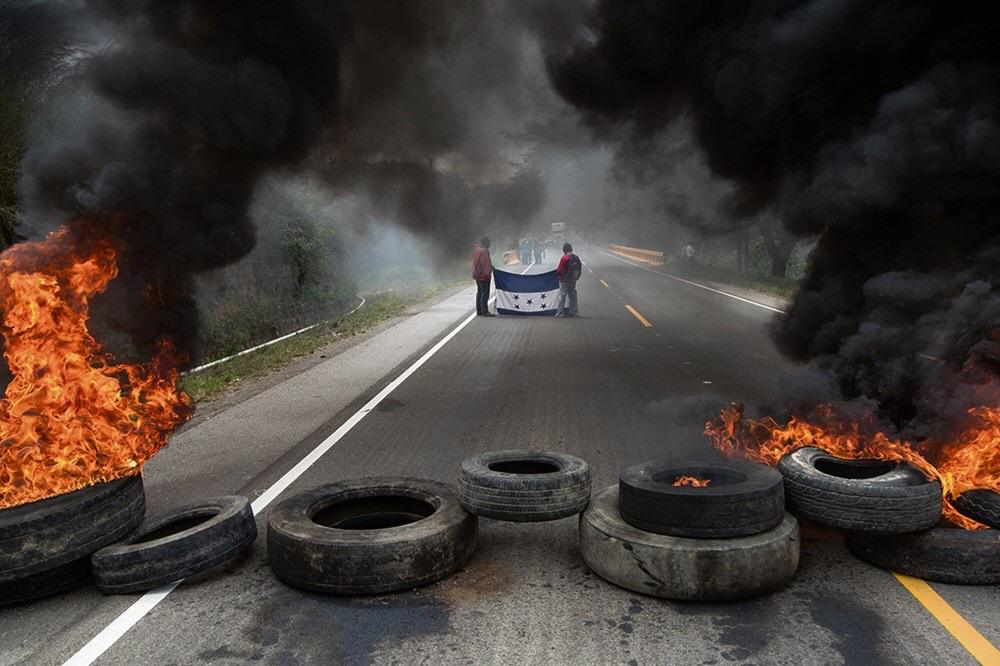En Santa Bárbara existe el reino de las Lumbas y de los Lumbos.
Un Lumbo es alguien parecido a un jilote, casi como un yuyo, está lejano del penco y del bruto; no es jayán, ni mostrenco; es primo tercero del desmuelado y del detenemelapeña. Un Lumbo es algo pacienzudo, pero es dulce y noble, sus hijos pueden ser melancólicos; les gusta el café, las tortugas y sueñan que un día serán pescadores.
No confundan al Lumbo con el aguanbado, con el pereno, con el lento, la tapia, el torpe, el pachorra. No. Nada que ver con el abrejeta, con el amoinado, con el pasalobien o el choyudo. Son totalmente diferentes.
Con el Sanguamilón comparten zapotes, pero no se parecen tampoco, sólo gustan de la misma fruta. El bayunco se parece un poco al Lumbo, pues el bayunco hace bayuncadas pero sin querer, la diferencia aquí parece técnica, pero realmente es esencial, pues un Lumbo sólo comente lumbadas, no puede hacer ni bayuncadas, ni estupideces. Los Lumbos no son pendejos, aunque conozco pendejos que serían felices siendo Lumbos.
Un Lumbo, por ejemplo, no baja las cuestas: las sube. Hay Lumbos de nacimiento como Alex Darío Rivera y adoptados como Candelario Reyes García, aunque Lupita y los hijos de Candelario son Lumbos de abolengo. Los Lumbos son expertos en ver la llovizna, en contar las luciérnagas con el dedo índice, les gusta la poesía, son revolucionarios naturales y son felices imaginando el viento cuando va entre las cortezas y las hojas. Yo digo que sólo los sefarditas pueden ser Lumbos.
Los Lumbos son despistados y buenas gentes. Los Lumbos no tienen nada de brutos. Los majaderos y los majes nunca podrán ser Lumbos. Los fascistas no pueden ser Lumbos. El corazón de los Lumbos es como el resplandor primero en los bosques; por eso creo que al principio del mundo el primer Lumbo y la primera Lumba, fueron los que se apartaron de la tribu que sólo pensaba en comer y tener la panza templada, para irse al horizonte a soñar y a entender la canción de la lejanía.
Hay Lumbos para todos los gustos; en Santa Bárbara venden Lumbos en chocolate, Lumbos con miel, Lumbos en empanadas, llaveros de Lumbos y chancletas de Lumbas, Lumbo con leche, café con Lumbo; también hay Feria de Lumbos y existe la Santísima Virgen de los Lumbos y también hay unos hijos de la Gran Lumba politiqueros, que poco quieren la tierra del junco, del café y de las Lumbas bellas.
Los Lumbos y las Lumbas, en verdad son seres extraños, tan extraños que parecen gentes. Les gusta contar perras en las esquinas de las calles, andar sin camisa, son mentirosísimos, todo Lumbo jura que él tiene la razón, que sabe donde están todas las botijas, le clavan apodo a todo el mundo, se ríen de los pendejos y de los brutos y de los estúpidos. Las casa de los Lumbos convoca la alegría y la buena fe. Los Lumbos son inocentes de todo. Si vas a Santa Bárbara los Lumbos te mirarán largamente, reconociéndote, y si hay algo de Lumbo en vos te van a querer, te van a dar su taza y su café, sino intentarán venderte la luz del día o los peor: cobrártela.
Nunca le temas a un Lumbo. Con las Lumbas ¡cuidado! que son bellas y te pueden lumbonizar.
El poeta Rigoberto Paredes y el teatrista Delmer Dagoberto López Moreno están encachimbados porque no son Lumbos, casi casi salen Lumbos, pero salieron trinitecos, y hay diferencias entre trinitecos y Lumbos, los trinitecos cuando cuentan u oyen una perra dicen: "¡Santísimo lindo!" los Lumbos dicen: "¡Santísimo!", una cosa es cierta, los trinitecos son otro pisto y otras jaranas, esos locos y pirómanos que son primos entre todos y le declaran amor a todo el mundo, serán tratados por este poeta en otra ocasión, aunque si adelanto que ya llevo el “Tomo II de la Enciclopedia Universal Santabarbarense de Fundación del Gran Guacal y del Ayote con Dulce” en ese tomo trataremos a esos seres llamados Trinitecos.
Lumbos, Lumbas, era mi hora de descanso y pensé en tocarlos con estas palabras, en joderlos un poco, por aquello que yo amo lo que ahí respira y por aquellos días de sueños bajo las colinas de Santa Bárbara.







